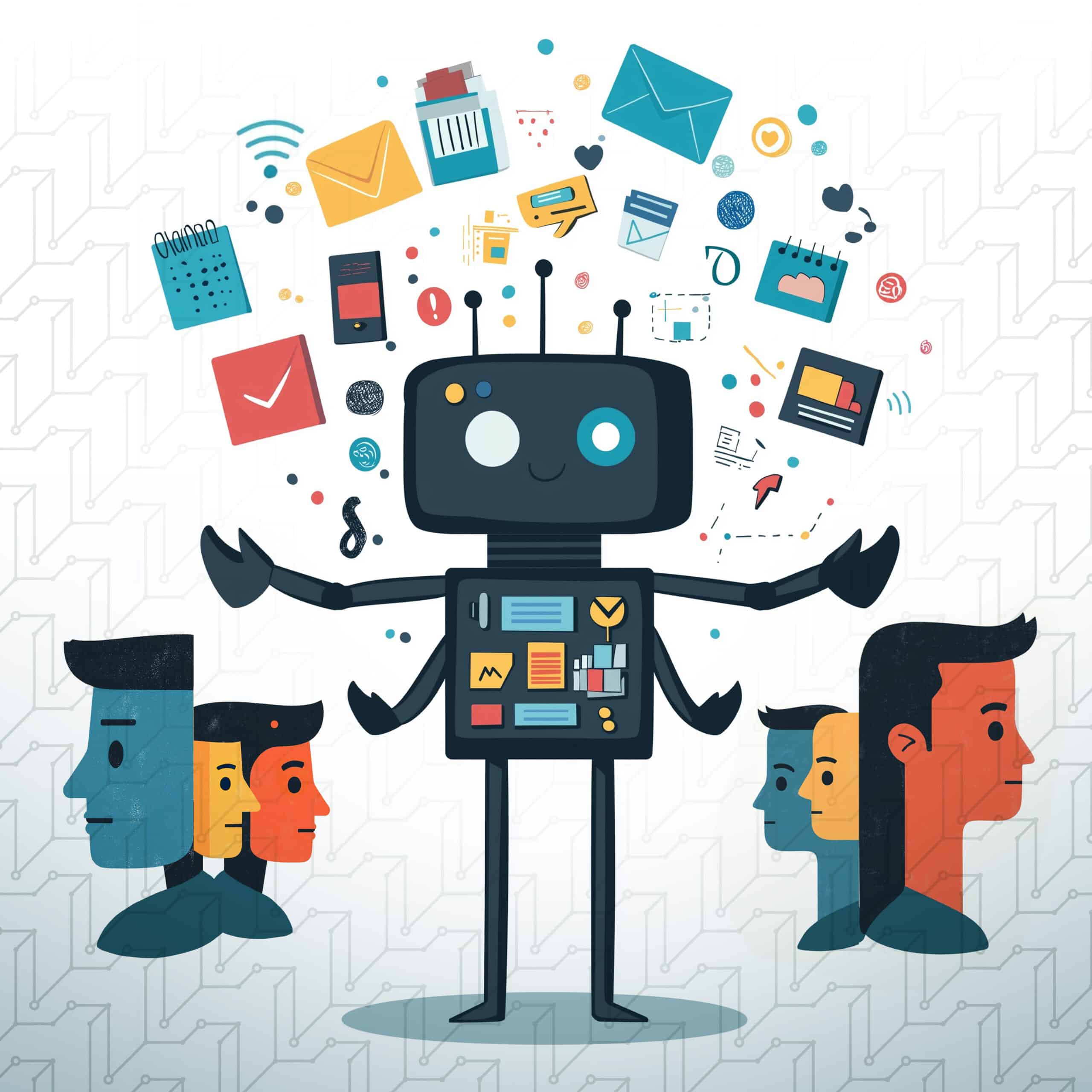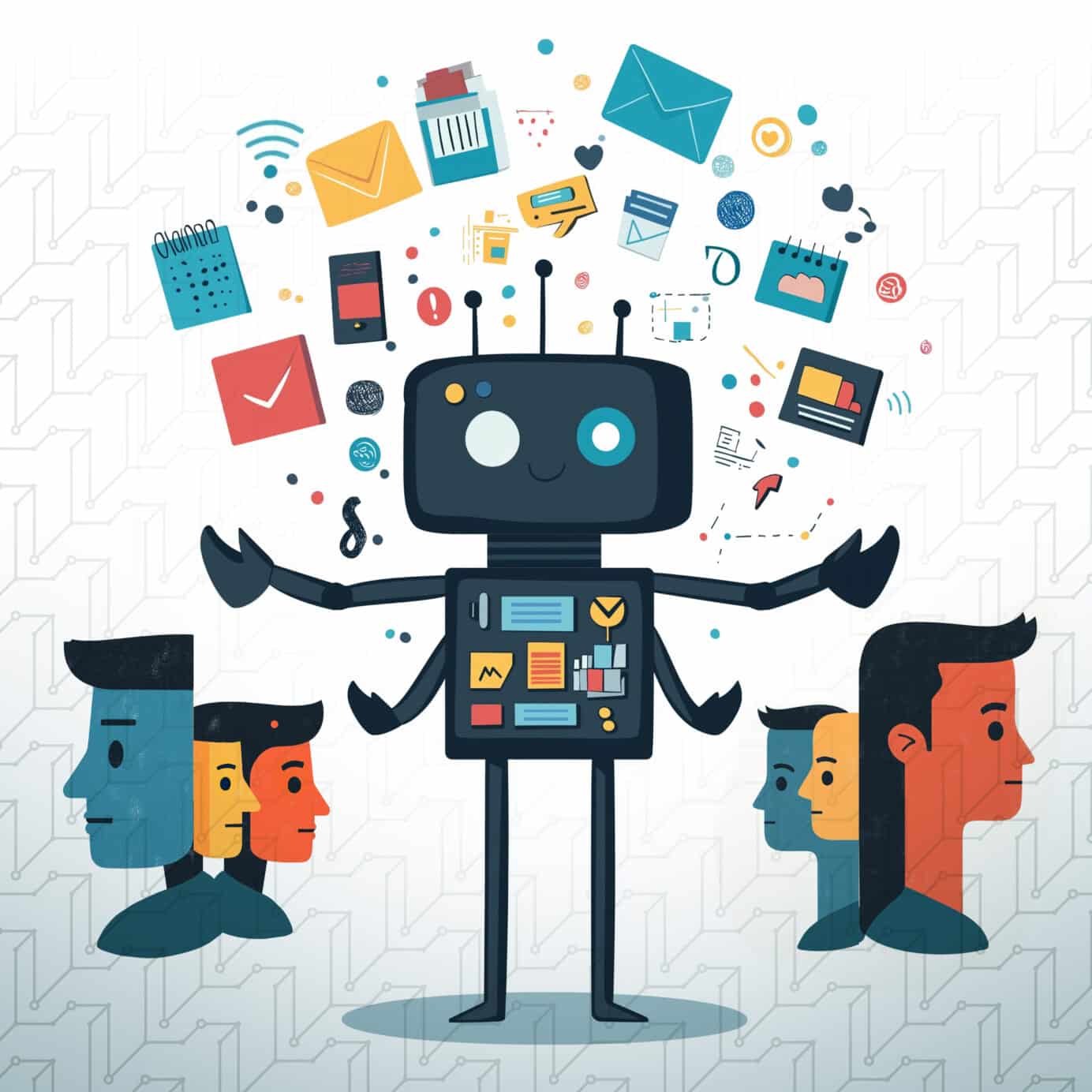2025’s game-changing marketing trends: Automation, personalization and AI
By: Lydon & Associates | Contributors: Brian Lydon & Kamryn Bogott

The marketing landscape is evolving faster than ever, with automation and personalization at the forefront of this transformation–and the Artificial Intelligence (AI) driving it. According to HubSpot’s 2024 AI Trends Report, 53 percent of respondents believe fully implementing AI and automation will drive unprecedented growth. As we look to 2025, these game-changing trends are reshaping the way businesses engage with customers, optimize campaigns, and deliver more targeted and personalized experiences.
AI’s impact on marketing
Still in its fledgling stages, AI is already revolutionizing customer engagement and decision-making in marketing. Generative AI is changing how search engines like Bing and Google work, disrupting traditional search engine optimization (SEO) strategies. Google’s focus on three core areas highlights this shift:
- Evolving search behaviors. Users are moving beyond keywords toward multimodal search experiences.
- AI-powered creative tools. Marketers have gained the ability to produce high-quality, innovative content more efficiently.
- Enhanced cross-channel measurement. AI tools are providing actionable insights, allowing for cohesive campaign tracking across platforms.
These changes are challenging marketers to quickly adapt or risk falling behind competitors who embrace these tools. Beyond just SEO strategies, AI enables:
- Hyper-specific targeting. Brands can now tailor campaigns based on customer behavior, intent, and emotional state.
- Performance optimization. AI analyzes past performance and predicts trends, offering actionable adjustments that can be applied to campaigns in flight or in future creative iterations to improve outcomes.
- Hybrid creativity. While an over-reliance on AI content risks perceptions of inauthenticity, a balanced approach—using AI to scale processes while preserving emotional depth—will be key in 2025.
The importance of automation
Automation is revolutionizing marketing by streamlining processes and freeing up time for strategic thinking. This shift is enabling businesses to stay agile and respond effectively to market demands. Here’s how automation is reshaping marketing processes:
- Real-time campaign management. AI-powered tools enable instant adjustments based on performance metrics, ensuring campaigns stay relevant and effective.
- Automated workflows. Platforms like HubSpot handle repetitive tasks, from email campaigns to lead scoring, with precision and scalability. For example, email sequences can adapt dynamically to user actions, such as clicking a link or attending a webinar.
- Scalability without sacrifice. Automation allows teams to scale their efforts while maintaining quality. From social media scheduling to data analysis, marketers can focus on creative strategy rather than manual tasks.
- Efficiency in testing and optimization. A/B testing, audience segmentation, and performance tracking are becoming faster and more insightful with automated solutions.
The power of personalization
Personalized marketing continues to deepen customer satisfaction and loyalty. In 2025, personalization will reach new heights with truly dynamic content that adapts to viewer behavior, time of day, or even global events—elevating the concept of marketing “micro-moments.” Some key insights from Salesforce that prove the point:
- 78 percent of marketers report that personalization strongly impacts customer relationships.
- AI will refine buyer personas and ideal customer profiles, enabling brands to craft outreach strategies that align seamlessly with individual interests and needs.
- Predictive analytics will empower marketers to anticipate customer desires, delivering relevant offers and recommendations at that moment.
Highly specialized industries require guidance
As automation, personalization and AI reshape marketing, industries like Financial Services, IT/Technology and Manufacturing are also seeing significant transformations—and they are requiring increasingly tailored marketing guidance now more than ever. Lydon is positioned to help businesses in these verticals navigate these changes effectively.
Financial Services
AI-powered risk assessment: AI analyzes vast amounts of data to improve decision-making, from loan approvals to fraud detection.
Personalized financial advice: Automation and AI enable financial firms to offer tailored financial products and recommendations based on individual client profiles.
Lydon’s Expertise
Lydon helps financial services firms understand and communicate these advancement, and harness AI and automation to build customer-centric campaigns and stay ahead of regulatory changes with efficient, streamlined processes.
IT and Technology
AI in product development: AI accelerates product development, offering personalized user experiences and smarter services.
Lydon’s Expertise
Lydon helps technology companies craft marketing strategies that highlight their innovative products and services, utilizing AI-driven insights to engage prospects and optimize user journeys.
Manufacturing
Automation in production: AI improves speed and consistency on production lines, driving cost efficiencies.
Lydon’s Expertise
Lydon supports manufacturers in creating impactful, automated marketing campaigns that enhance brand visibility and drive engagement, all while leveraging AI to optimize performance.
Looking ahead
The integration of AI, automation, and personalization is more than just a passing trend—it’s setting the stage for the next era of business and marketing. As businesses continue to integrate these technologies, they will not only meet shifting customer expectations but also reshape how they engage with their audiences on a deeper, more meaningful level.
The brands that prioritize AI-driven strategies, streamline workflows with automation, and create personalized experiences will lead the way into 2025 and beyond. This is not about keeping up—it’s about staying ahead of the curve and transforming the way marketing works.
As we look to the future, the real question is: How will your business leverage these game-changing tools to stand out in an increasingly competitive landscape—and how will your marketing sell your new solutions in an authentic and compelling way?




